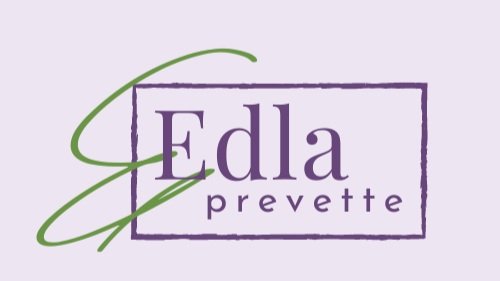Declining Vision and Hearing: Behavioral Changes in Older Adults and 5 Strategies to Support Them
Hey Friends!
You might be wondering why a blog about the vision, hearing, and behavioral changes in older adults is important in the context of caretaking.
If they wear their glasses or hearing aids, isn't that all there is to address?
You’d think! But like most implications of aging, it isn’t that simple.
It’s more gradual, and depending on your aging parents’ temperament, it can be a big deal in terms of their ability to live alone as well as how they behave or process information.
I was having a conversation with a client named “Cissy” about her mother. She was noticing that her mom was not cleaning like she used to. She explained that her mom was a traditional homemaker, wife and mother of the ‘50’s. She took pride in her tidy home!
When I began to ask questions about her mother’s vision and hearing Cissy shared that she initially noticed little things…a small magnifying glass, asking the family to repeat things, turning up the TV volume.
I bet this sounds familiar!
But the cleanliness of her mother’s house had been the most noticeable decline lately and was concerning. Cissy shared that her mom still cleans her house on a regular basis but she’s missing a lot.
She just can’t see the typical grime and dirt that is normal for any house.
Like you, Cissy was feeling anxious and dreading having the conversation with her mother about the housekeeping.
She could hear her saying any version of the following…
“My house is perfectly clean, I’m insulted!”
“What do you mean hire a housekeeper, that’s a waste of money. You’d have more money if you took care of your own house!”
“I’m so embarrassed that my house is dirty. I don’t want anyone to see it. Can’t you just clean it?”
This is a hard but necessary conversation to have with your parents because of the safety issues surrounding an untidy kitchen or house for that matter.
The One-Eighty Bookend Technique that I taught Cissy worked so well for initiating the conversation with her mother. Download this free guide to use when it’s time for these challenging conversations.
You got this!
The Impact of Declining Hearing and Vision of Your Aging Loved Ones.
We know that the aging process brings about a multitude of changes but we really just don’t spend a lot of time thinking about them. The changes in vision and hearing are particularly significant. These changes can have a profound impact on the daily lives of your aging parents and grandparents. It affects their independence, communication, and overall quality of life.
As the senses of vision and hearing decline, you’ll notice a range of behavioral changes as they adapt to their changing sensory landscape. These changes can be both subtle and profound, impacting various aspects of their behavior and interactions with the world around them.
Irritability and Frustration
Struggling with daily activities due to sensory changes can lead to heightened levels of frustration and irritability. Simple tasks that were once effortless can become sources of stress and annoyance.
Cognitive Changes
The effort required to decipher unclear sights and sounds can divert cognitive resources, potentially leading to cognitive fatigue and impairing cognitive functions such as memory and problem-solving.
Social Withdrawal
A common behavioral response to declining vision and hearing is social withdrawal. Seniors may avoid social situations due to the frustration and anxiety of not being able to hear or see clearly. This withdrawal can lead to feelings of isolation, loneliness, and even depression.
Communication Challenges
Struggling to hear conversations or see facial expressions can lead to miscommunication. Elderly individuals might nod or respond inappropriately to conversations they don't fully comprehend, which can hinder effective communication and create misunderstandings.
Decreased Mobility
Reduced sensory perception can lead to a decreased sense of safety and confidence in navigating the environment. Seniors may become less willing to move around, fearing obstacles they can't clearly see or sounds they can't identify.
5 Strategies for Dealing with Behavioral Changes in Older Adults
Regular Check-ups
Routine eye and hearing exams are crucial for early detection of problems. Catching issues early can lead to more effective interventions.
Assistive Devices
Hearing aids and magnifying devices can significantly improve daily functioning. There are many advances in noise-canceling and Bluetooth connectivity that are improving the efficiency of these devices.
Environmental Modifications
Making homes brighter with adequate lighting and using contrasting colors for better visibility can ease the strain on aging eyes. Installing visual or vibrating alerts can enhance safety for those with hearing impairments.
Communication Strategies
Speaking clearly, facing the person you're speaking to, and minimizing background noise can improve communication for both parties.
Supportive Community
Encouraging social interactions and providing emotional support can help your aging parents navigate the challenges brought on by changes in vision and hearing.
The journey through aging brings with it inevitable changes in vision and hearing. If we understand the behavioral shifts that often accompany these changes it empowers us to provide appropriate support. By implementing these strategies we can help our aging parents maintain their independence, boost their self-confidence, and enjoy a fulfilling life despite the challenges posed by sensory decline.
Remember, with the right tools and a compassionate approach, we can make a significant difference in the lives of our parents as they age.
Take Care,
Edla
NOTE: It's important to remember that aging is a highly individualized process, and the timing and progression of these stages can vary among individuals. Additionally, lifestyle factors, genetics, and overall health play significant roles in how individuals experience aging.



